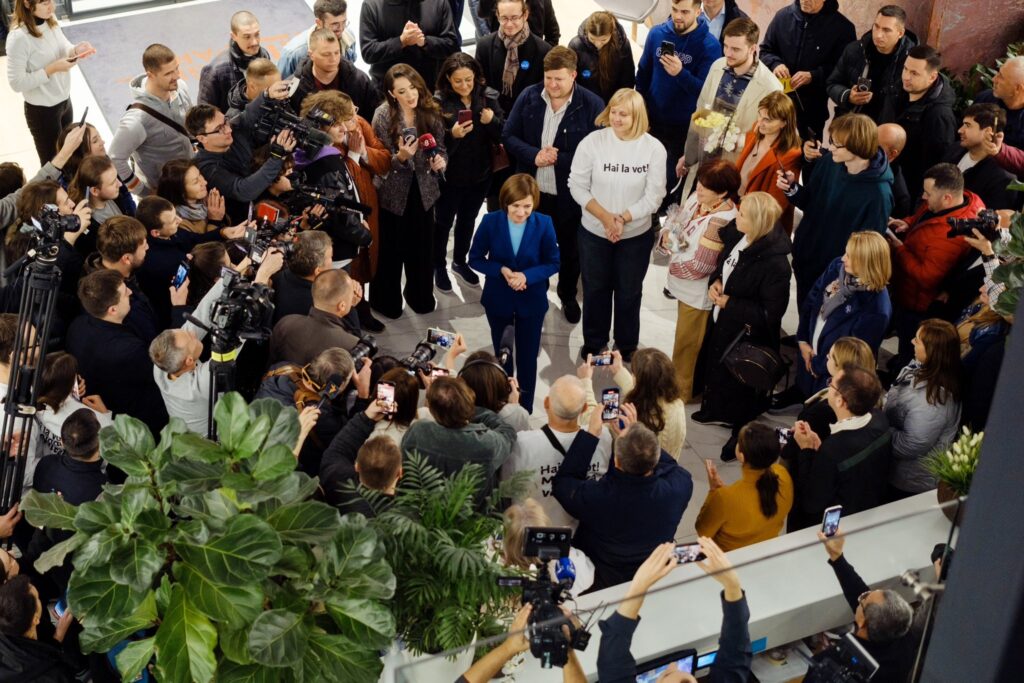Russia to intensify Moldova destabilization before 2025 parliamentary elections, expert warns
Moldova should prioritize economic growth and social cohesion, as Russia-backed forces exploit internal divisions to push an anti-European agenda, the expert says.


Anastasia Pociumban from the German Council on Foreign Relations (DGAP) told Ukrinform that Moldova’s recent presidential elections saw substantial foreign interference and manipulation. She cautions that with the 2025 parliamentary elections approaching, Moldova may face intensified Russian influence efforts.
Pociumban emphasized that while the presidential election resulted in Maia Sandu’s victory, the narrow margin of support among local voters suggests ongoing divisions within Moldovan society.
“These elections were conducted under unprecedented interference, including voter manipulation, organized voter transport to polling stations, cyberattacks, and bribery. Despite these obstacles, Sandu secured victory; however, only 48.76% of voters within Moldova supported her,” the expert noted.
In early October, Moldovan detectives uncovered a Moscow-orchestrated “mafia-style” network that funneled over $15 million to 130,000 citizens in September. Banned pro-Russian party founder Ilan Șor, a fugitive oligarch hiding in Russia, allegedly laundered funds through banks to bribe voters ahead of elections and the EU referendum.
In the context of the recent referendum on European integration, Pociumban pointed out that the slim difference between “for” and “against” votes indicates that the initiative did not resonate broadly enough to unify the country around pro-EU sentiments. This division presents an opportunity for Russian-backed forces to exploit public discontent and push an “anti-European agenda.”
As Moldova gears up for its 2025 parliamentary elections, Pociumban anticipates that various parties will attempt to siphon votes from Sandu’s ruling Party of Action and Solidarity (PAS). This shift could further polarize Moldovan society, exacerbating tensions and conflicts among the electorate.
Related:
- Diaspora vote clinches Sandu’s re-election in Moldova, reflecting deep divisions within the country
- Russia-based oligarch funneled $39 million into vote-buying scheme in Moldova
- Moldova’s presidential election: the Russians were not coming (this time)
- Moldova raises concerns over Russian threats aimed at disrupting EU polling stations
- Sandu claims 300,000 votes bought in “fraud of unprecedented scale” at first round of Moldova’s presidential election
- Inside Russia’s € 150 million propaganda blitz to undermine Moldova’s EU path
You could close this page. Or you could join our community and help us produce more materials like this.
We keep our reporting open and accessible to everyone because we believe in the power of free information. This is why our small, cost-effective team depends on the support of readers like you to bring deliver timely news, quality analysis, and on-the-ground reports about Russia's war against Ukraine and Ukraine's struggle to build a democratic society.
A little bit goes a long way: for as little as the cost of one cup of coffee a month, you can help build bridges between Ukraine and the rest of the world, plus become a co-creator and vote for topics we should cover next. Become a patron or see other ways to support.



